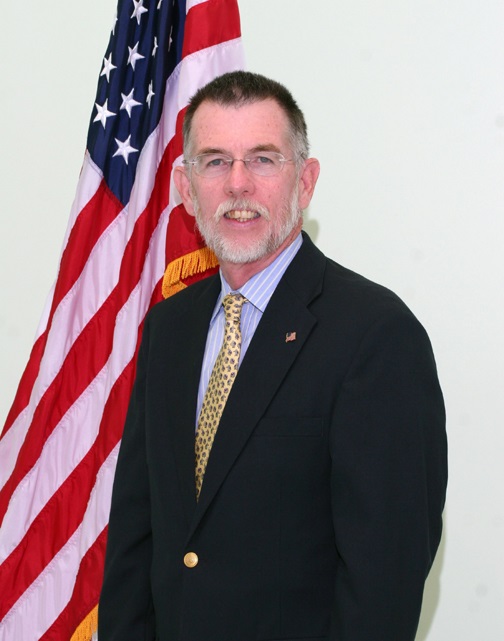Story by Sara Paul
In the past few decades, Orange County’s dairy farms have tragically depleted from hundreds to a mere 30 or so. With production costs rising and consumer interest languishing, it’s becoming a hard dirt road for the hard-working dairy farmer.
Long-time farmer William “Bill” Johnson has lived this historical road with its deep and dangerous financial trenches and, at 94 years old, the Goshen resident continues to fight for the survival of Orange County’s treasures.
“Our biggest problem is that as farmers we do not have enough votes and not enough money. A lot of the Orange County dairy farmers are broke,” said Johnson, who bought Fort Hill Farm in Goshen in the 1950s, before selling the business to his son, Phil, in 1986.
“Nobody’s drinking milk! Milk is good for you, and so are a lot of dairy products,” frets Bill, also known as “Wild Bill,” who claims he drinks raw milk every day.
According to Bill, even with a dated 1930s pricing formula, zero processing plants in the New York City metropolitan area, and the removal of milk from some schools in the US, he hopes that with awareness, things can turn around for the better.
“An educated consumer is our biggest asset. People don’t have any idea where our milk comes from,” commented Bill, who served on the Orange County Agricultural Committee for many years and was director of the Finance Committee for Eastern Milk Producers.
Wild Bill also hosted “Farm Talk” Radio on WTBQ, while he and his late wife of 64 years, Alice, were always conservationists at heart, participating in a program bussed in kids from urban areas for 14 years. His son, Phil, on the front lines of the dairy crisis, sees the problems first hand on a daily basis.
“Dairy farming is going to become extinct in Orange County, unless we start getting paid more money for our product. The best thing this county can do is to add a few dollars per hundred weight of milk, and this would be a premium for us to continue farming,” said Phil, who is president of the Downstate Milk Producers Co-op. While the co-op once had 25 members, now only ten remain.
“There are a lot of nails being put in our coffin, like the new law that dictates that employees must be paid time and a half for over 60 hours per week,” said Phil, adding that transporting milk north to be processed and then back down south to the NYC area costs a lot of money and is also tough on the environment.
“It’s all connected. The dairy farms suffer because of transportation costs and then there is this waste of gas and energy for this extensive shipping,” commented Phil, who insisted his children attend college because, he says, “this business is not something I feel I can pass on to them as people used to do.”
Phil currently plants 500 acres of corn in 130 fields, annually, and has a closed herd of 700 cows and heifers.
Bill adds, “We had a lot of people supporting farming and now they’re gone. We’ve lost our services big time, as some places don’t sell necessary equipment. We also need qualified people.”
With a copy of Nina Teicholz’s best-selling book, The Big Fat Surprise, about the benefits of dairy, and a stack of relevant newspaper articles and photos covering his kitchen table, Bill says he is just plain fed up with lots of talk and little action.
The self-proclaimed ornery, well-read, and no-nonsense gentleman regards politics with some obvious disdain.
“What’s the point of all these committees if nothing gets done? Anyway, farmers are busy farming and don’t have time to get to all these meetings,” he said, noting that the dairy farmer problem is a nationwide trend.
When Bill made a plea to Orange County Executive Steven M. Neuhaus, a letter was sent from Neuhaus’s office to the Commissioner of Farms and Markets, Richard A. Ball, at the NYS Department of Agriculture & Markets.
Neuhaus wrote in the 2016 correspondence, “The entire system is in need of a complete overhaul that must begin on the state level with changes to outdated formulas and regulations. I hope that you will take the time to meet with me and local officials as well as local dairy farmers to determine the best course of action to ensure a long and prosperous future for dairy farming in Orange County.”
Johnson says the Commissioner never responded to the letter.
Neuhaus remains concerned today.
“Albany politicians have shown a disregard for our farms and Mr. Johnson is entirely correct that the law passed added costs to our family farms. Saving farms is not a partisan issue but the fact is when the Republicans controlled the State Senate, they kept proposals like those Mr. Johnson says hurt his farm from passing,” Neuhaus wrote in a recent email.
Johnson Family’s Strong OC Roots
William Scott Johnson was born in Chester, NY on May 28, 1925. His parents owned a farm on Johnson Rd., and he worked for his father, while attending school in Chester.
In 1937, young Bill moved to a new Chester middle school, and went to Chester High School until his dad suddenly contracted pneumonia and then had a heart attack. Bill left high school just shy of graduating, and with about 70 good-sized cows, he was put in charge. He later returned to take the regents and earned his high school diploma.
A meeting with a great Goshen farm gal rendered Bill ready for matrimony, and on Nov. 15, 1949 he married Alice White at a small ceremony in Goshen.
Alice’s family owned Fort Hill Farm, dating back to 1883. Bill paid $24,000 for 165 acres.
With an additional $5,000 loan, Bill was able to build a proper house and dig a well. They moved in the day before Thanksgiving in 1950 and raised three children, Phil, Linda and Pat in the house before putting three kids through college. Bill’s wife of 64 years passed away in 2014.
Proud of his craft, his career, and his contribution to Orange County dirt, Bill Johnson sees the big picture.
“Dairy famers don’t just make milk. They manicure the land,” he said.










